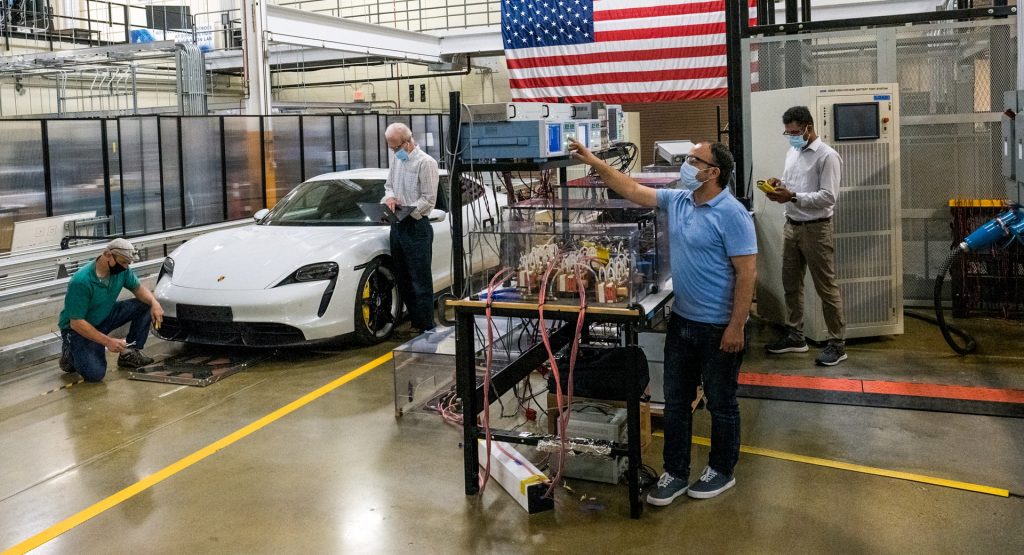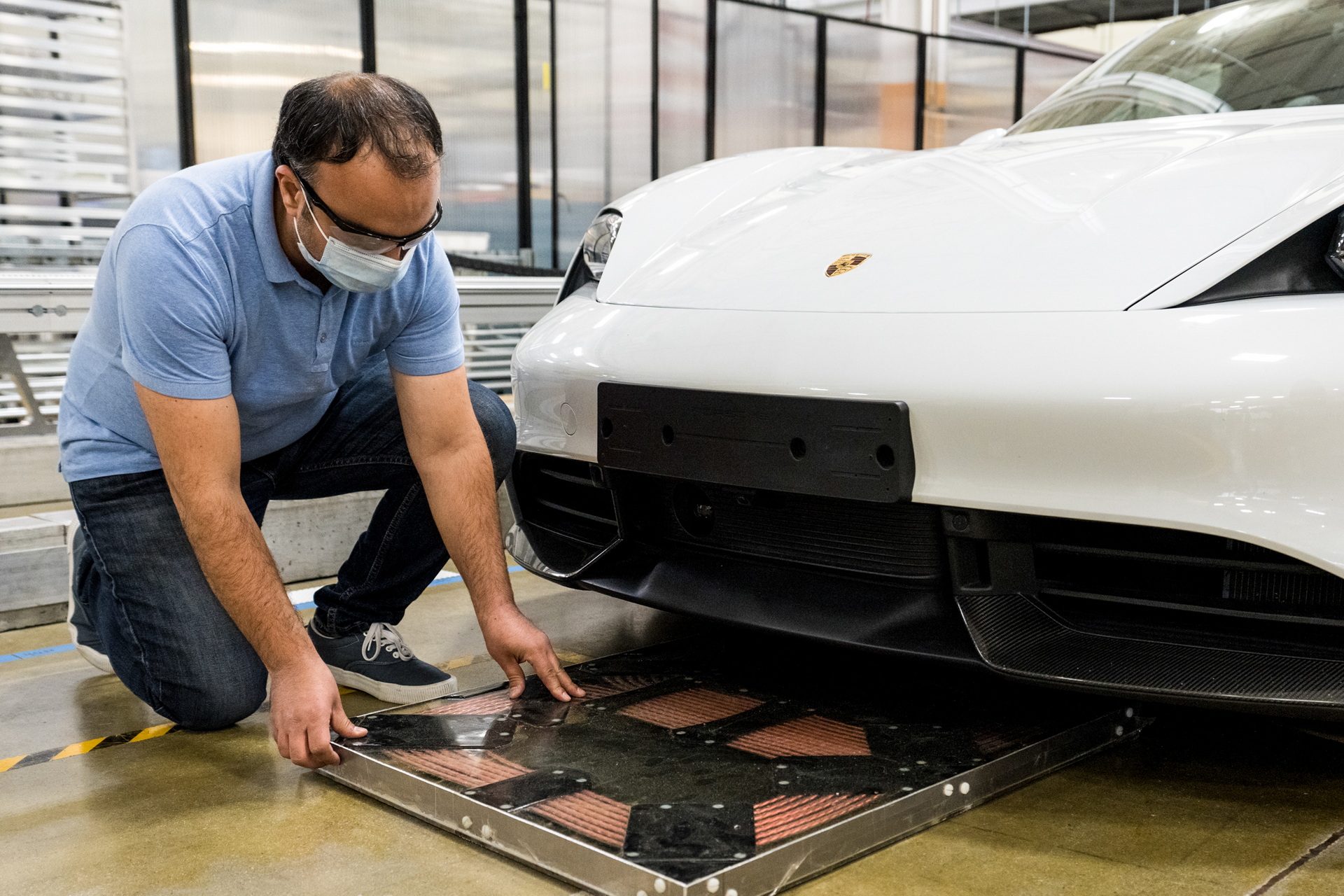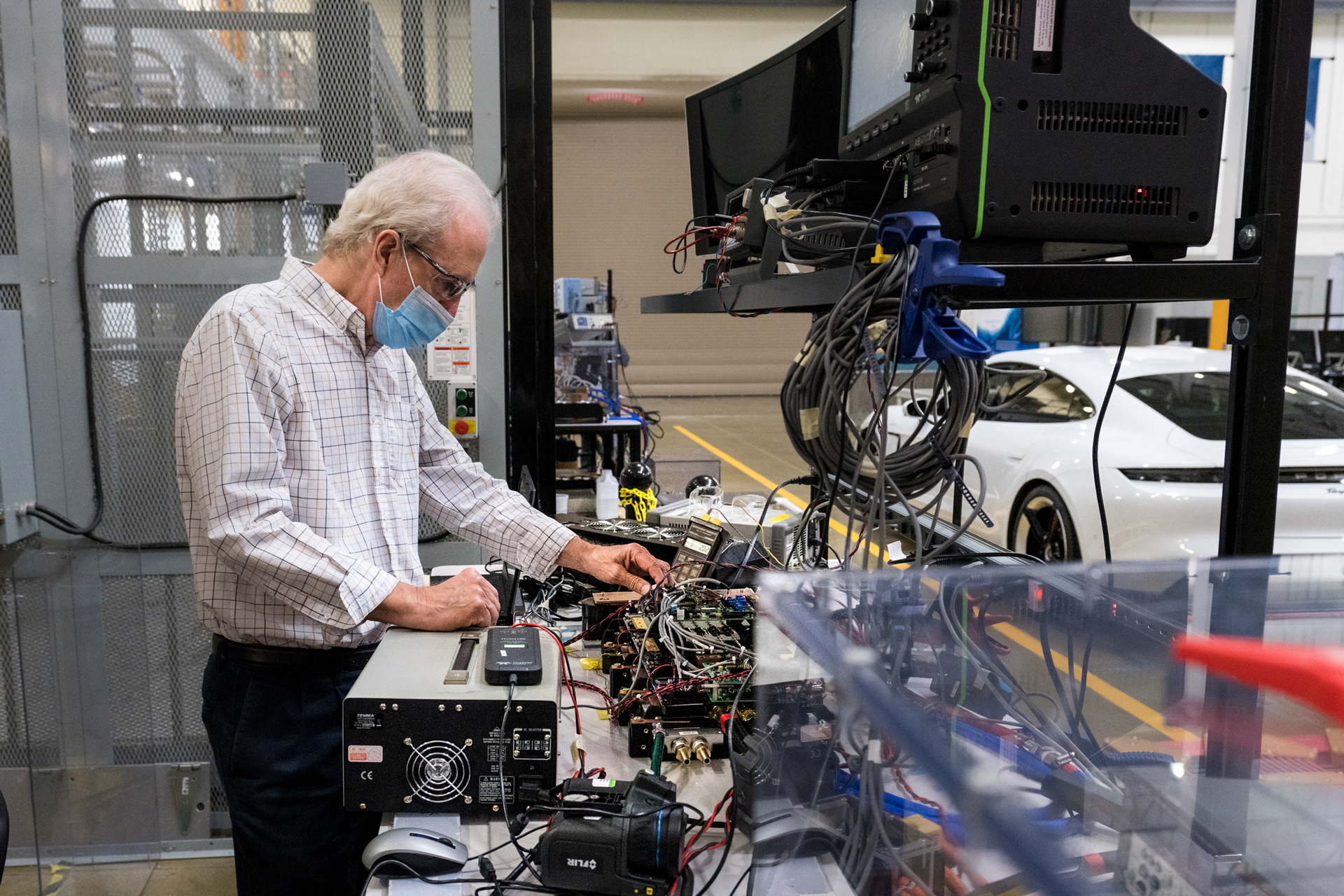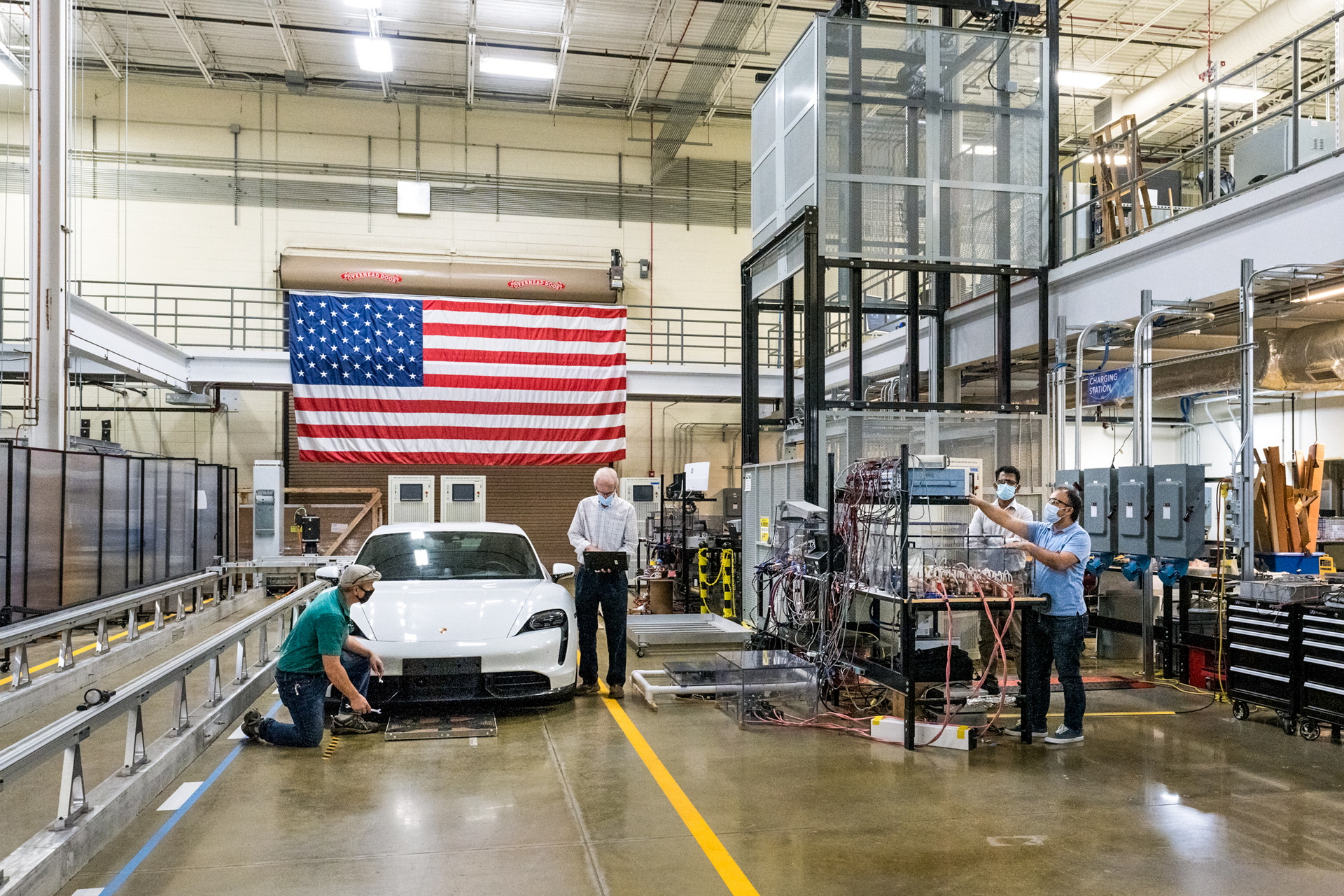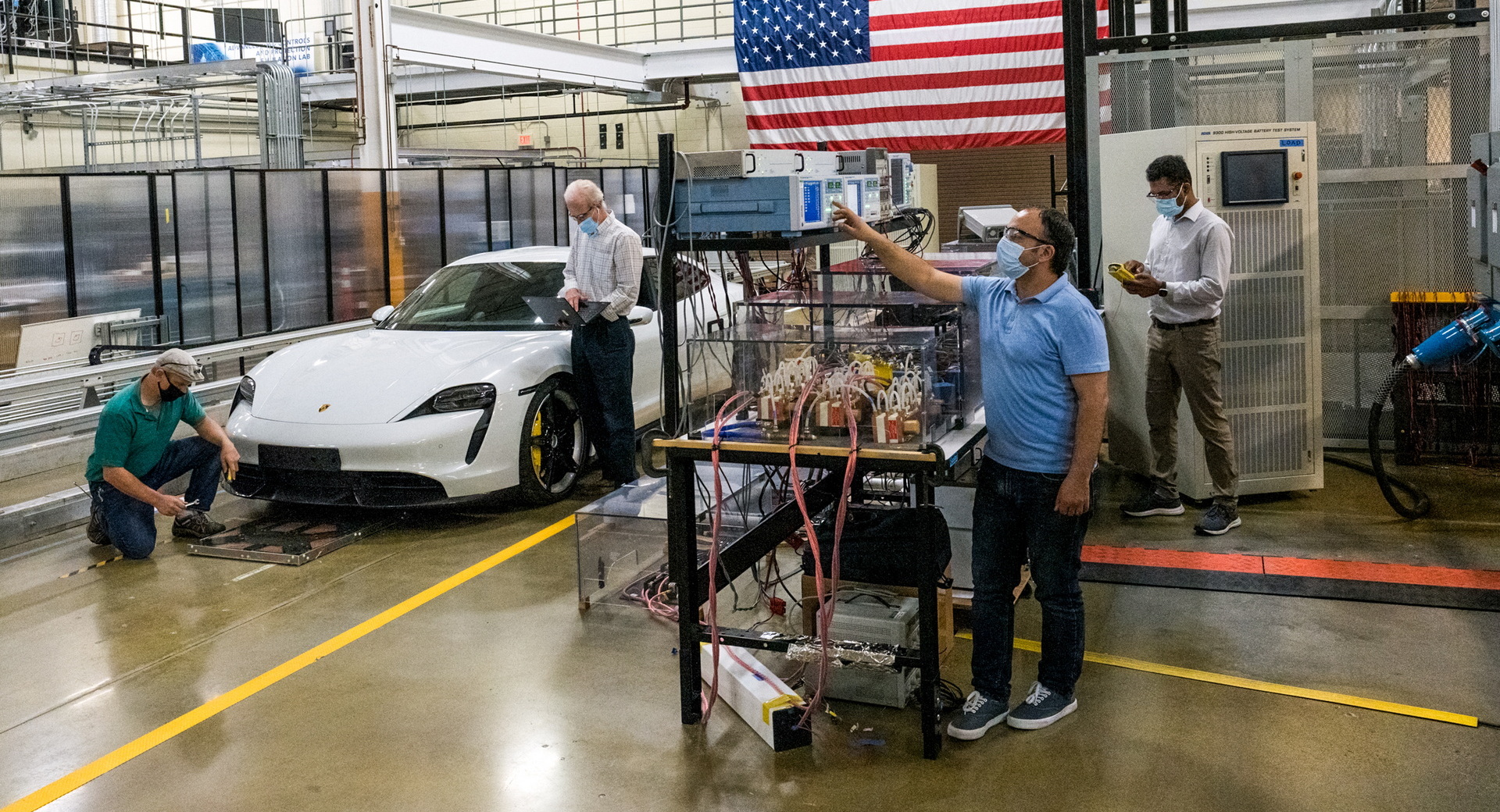Volkswagen Group of America’s Innovation Hub Knoxville, the company’s technology unit for applied materials science, is expanding its research collaboration with the Oak Ridge National Laboratory (ORNL) and the University of Tennessee, Knoxville to work on future technology.
Together, the three partners aim to “explore how to integrate breakthroughs in material science and recycling concepts to support electric mobility and sustainable transportation.” Their first project will test a better way to recharge wirelessly.
The partners plan to work on ORNL’s high-power wireless EV charging concept with a Porsche Taycan. The goal is to make a breakthrough in wireless charging design that focuses on electromagnetic waves to eliminate interference.
Read Also: Germany Is Already Testing Overhead Charging Cables For Long Haul Electric Trucks On Highway
Early trials are promising, and a prototype system has already shown an efficiency of up to 98 percent. That means that almost all of the power leaving the charger makes it to the vehicle. By working with VW, the team has been able to ramp up the power from 6.6 kW to 120 kW. The goal, though, is to ultimately reach a 300 kW power level, which would allow the Taycan to charge to 80 percent in just 10 minutes.
“We are excited to work with Volkswagen to demonstrate ORNL’s high-powered, ultra-efficient wireless charging technology,” said Xin Sun, Associate Laboratory Director for Energy Science and Technology at ORNL. “Our unique polyphase electromagnetic coil design and power electronics provide high power transfer levels in a compact system, with the potential to alleviate electric vehicle range anxiety and speed the decarbonization of the U.S. transportation sector.”
The research will expand beyond that, though, into areas such as advanced functional materials. That includes composite car body parts, plant-based materials for interior designs, and new recycling concepts for materials that have historically been considered non-recyclable, such as fiber-reinforced composites.
“The global Volkswagen Group aims to build a more sustainable vision of future mobility worldwide, and we connect the best researchers in the world to make that a reality”, said Nikolai Ardey, Executive Director Group Research at Volkswagen Group. “Co-innovating with partners like Oakridge National Laboratory and University of Tennessee helps to multiply the power of Volkswagen’s international innovation team.”




